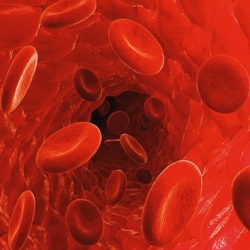
One medication used to treat diabetes has shown a positive unintended consequence: It helps fight cancer. Researchers have observed that diabetic patients whose diabetes was being treated with the drug metformin had better chances of recovering from head and neck cancer than non-diabetic patients.
During the course of a three-year study, which was detailed in the journal The Laryngoscope, researchers at the Sidney Kimmel Cancer Center at Thomas Jefferson University examined this unintended side effect further and learned a great deal about how metformin affects the biology of cancer cells.
The researchers tested tumor cells in 39 non-diabetic cancer patients before and after they were treated with metformin in doses equal to half of what diabetic patients are usually given. While looking for molecular markers of cell death and changes in the metabolic pathways of cancer cells, which can make them more susceptible to standard therapy, the researchers noticed two things.
The first was that the patients showed a significant increase in tumor cell death, or apoptosis. Secondly, cancer-supporting fibroblasts, the cells surrounding the cancer, also exhibited signs of deterioration, which lessened their capacity to help cancer cells grow and metastasize.
It would seem that metformin affects the pathways that cancer cells rely on to make fuel for growth, and at the same time, it also changes the cancer’s microenvironment. “Because tumors need a lot of energy to grow quickly, throwing a wrench in their energy-production pathway makes this kind of cancer more susceptible to standard therapies,” first author Joseph Curry said.
Metformin has long been used to treat diabetes. It’s generally well-tolerated and has a long track record as a safe medication. It’s also much less toxic that most traditional cancer treatments, such as chemotherapy. In the study, for instance, most of the patients that were treated with metformin showed no unwanted side effects, and the few reported side effects were considered low grade, such as gastrointestinal upset.
“This study demonstrates that metformin has effects on head-and-neck cancers, at safe doses, that are at or lower than what is given to diabetic patients and that it changes head-and-neck tumor biology in a way that likely makes the cancer easier to kill,” co-author Madalina Tuluc explained. “Metformin disrupts the cancer’s most efficient method of generating fuel for its growth and shuts off the cancer’s support system.”
The research is certainly off to a good start, as these clinical trials showed. Still, we have a long way to go before metformin treatment directed at cancer (and not diabetes) becomes approved for general usage. “This study is the first step in showing how metformin acts on head-and-neck tumors, and we are excited that it could eventually offer patients a method of improving their outcomes with few side effects,” said senior author Ubaldo Martinez-Outschoorn, later adding, “The next step would be to test these doses of metformin in phase II clinical trials with a greater number of patients.”
